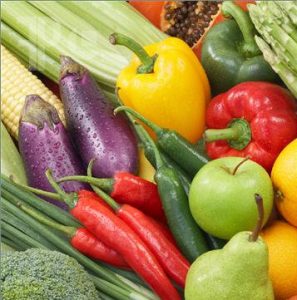 Medical studies shows that eating a plant-based cuisine can reduce your risk of heart disease, diabetes, stroke, cancer and obesity. Fat, cholesterol, steroids, hormones, PCB’s and heavy metals are present in animal foods like meat, fish, dairy and eggs. Eating animal-based foods can also expose you to Salmonella and other food borne illnesses.
Medical studies shows that eating a plant-based cuisine can reduce your risk of heart disease, diabetes, stroke, cancer and obesity. Fat, cholesterol, steroids, hormones, PCB’s and heavy metals are present in animal foods like meat, fish, dairy and eggs. Eating animal-based foods can also expose you to Salmonella and other food borne illnesses.
“70% of all Americans die from diseases related directly to their eating habits.”
-Former U.S. Surgeon General C. Everett Koop, M.D.
The American Dietetic Association reports that vegetarians “have a lower risk of obesity, coronary heart disease, high blood pressure, Type II diabetes and some forms of cancer.” The American Dietetic Association has also endorsed plant-based vegetarian eating as a viable way to control Type II diabetes. Plant-based vegetarians (also called vegans) consume fruits, vegetables, whole grains, nuts and legumes avoiding meat, dairy, eggs and fish.
World-renowned pediatrician and author of children’s health books, Benjamin Spock, M.D. believed plant-based eating is safe and beneficial for children.
“Children who grow up getting their nutrition from plant foods rather than meats have a tremendous health advantage. They are less likely to develop weight problems, diabetes, high blood pressure and some forms of cancer.”
By reading this you have taken the first step toward one of the best choices that you can make for yourself, animals and the planet. Trying plant-based vegetarian recipes can be a new eating adventure!
Will I get enough protein if I eat plant-based?
The Food & Nutrition Board, Academy of Sciences-National Research Council recommends 56-70 grams protein daily for adult men and 46-58 grams for women. 30 grams equals 1 oz. so we only need 2-3 oz. of protein each day. Many Americans eat way too much (animal) protein, which can leach calcium out of our bones. This can lead to osteoporosis (brittle bones).
It is easy to get enough protein: 1 whole cup cooked kidney beans has 13 grams protein compared to only 1.3 oz. chicken meat with 12 grams. 1/4 cup almonds has 8 grams protein, 1 cup brown rice has 5 grams. Even broccoli has 4 grams protein. All plant-based foods contain some protein.
If I don’t eat dairy, how will I get calcium?
You can get your calcium by eating dark green and leafy vegetables, beans, calcium-fortified orange juice and cereals and non-dairy “milks.” None of these have artery-clogging cholesterol and all are low in fat and high in calcium.
Dairy products containing calcium (milk, cheeses) are high in fat and cholesterol, both of which are bad for your waistline and your heart. The 12-year-long Harvard Nurses’ Health Study found that dairy does not protect against osteoporosis.
In fact, consuming animal-based foods can leach calcium out of your bones. Here’s how: Methionine, an essential amino acid, is higher in animal-based foods than in plant-based foods. Methionine makes your blood more acidic. The more animal-based foods you eat, the more methionine you consume. To neutralize acidic blood (to make it more alkaline), your body will take calcium from your bones. Just like Tums or Alka-Seltzer, your body uses the calcium in your bones like an antacid to lower the acid in your blood. Consuming foods lower in methionine can help maintain strong bones.
Can I reduce my risk for heart disease and cancer by eating plant-based?
William Castelli, M.D. Director, of the Farmington Heart Study states: “Vegetarians have the best diet. They have the lowest rates of coronary (heart) diseases of any group in the country. They have only 40% of our cancer rate.”
Plant-based foods contain ZERO cholesterol. Cholesterol is found ONLY in animal food products (meat, dairy, eggs, fish). Cholesterol can clog your arteries and is therefore bad for your heart.
Eating the typically recommended meat-based diet for heart disease can slow the progression of the disease. Eating plant-based has the potential to REVERSE heart disease.
How is meat-eating related to cancer?
There are no cancer-fighting compounds present in meat, only in plant foods.
Cancer causing agents called HCAs (Heterocyclic Amines) form when meat cooks. The longer and hotter meat cooks, the more HCA’s are formed. Grilling meat forms the most HCA’s.
The American Cancer Society states that “grilled chicken tends to form more of these cancer-causing compounds (HCA’s) than any other meat product.”
There is no fiber in meat. Fiber helps remove cholesterol and carcinogens from your body.
Plant-Based Eating includes the New Four Food Groups
1. The whole grain group includes bread, pasta, breakfast cereal, rice dishes, corn, and other grains which provide fiber, complex carbohydrates, important vitamins and protein.
2. The vegetable group includes broccoli, carrots, lettuce, cabbage, potatoes, and cauliflower. Vegetables are particularly rich in vitamins and minerals. Green leafy vegetables are also very good sources of fiber, complex carbohydrates, and calcium.
3. The fruit group includes apples, bananas, peaches, pears, and oranges, as well as exotic fruits, such as kiwis and star fruit. Because they are rich in complex carbohydrates, vitamins, and fiber, fruits provide valuable resistance to heart disease, cancer, and other degenerative diseases.
4. The legume group includes foods that come in a pod, such as beans, peas, soy and lentils and also includes tofu, soymilk and tempeh. These foods are excellent sources of fiber, complex carbohydrates, protein, and minerals.
To learn more, APLNJ highly recommends Physicians Committee for Responsible Medicine (PCRM) for creditable plant-based eating health information backed by scientific studies.